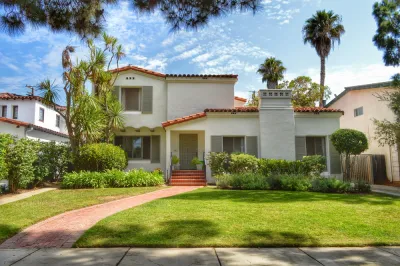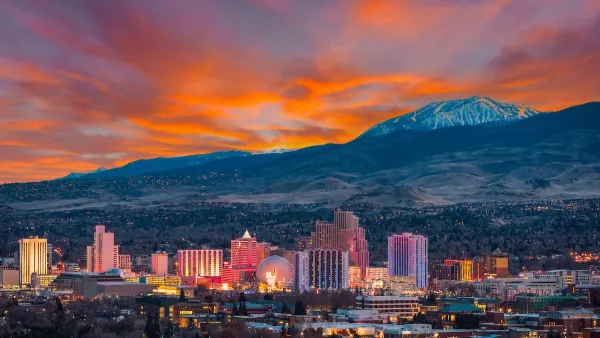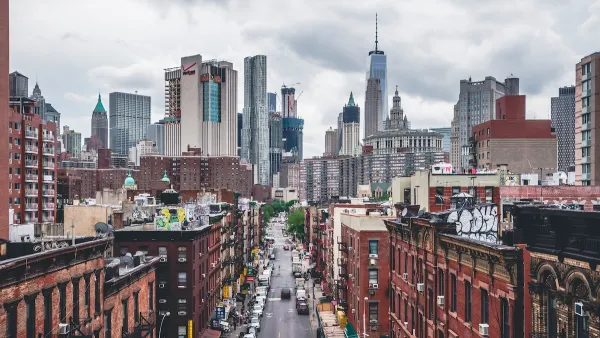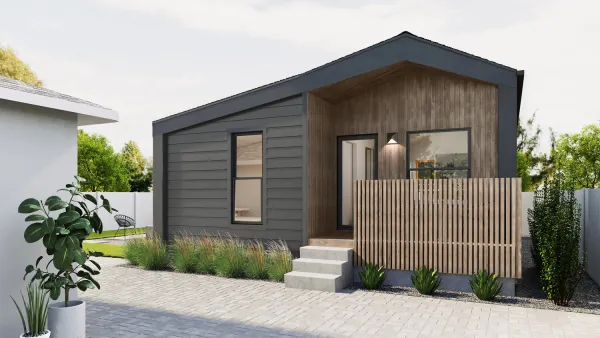As the pandemic shifts housing priorities and costs continue to soar, experts assess the potential for a crash similar to 2008's Great Recession.

With home prices and rents rising across the country, Jerusalem Demsas, writing for Vox, attempts to answer the question, "are we in a housing bubble?"
"[T]here’s no agreed-upon economic definition for an asset bubble," writes Demsas. "And in everyday conversation, it appears to mean 'prices have gone up a lot and I think they’re going to come crashing down again.'" Regardless of the label, Demsas argues that home prices depend "on public policy choices that are in our control."
According to research by Harvard economist Robin Greenwood and his fellow researchers, "just because prices rise really fast doesn’t mean it’s a bubble in danger of popping. The definition needs to be narrower than that." A "frenzied ethos" is also a key component. "In general, what people are looking for to determine if there might be a bubble in housing is that the fast price appreciation is detached in at least some ways from the fundamental reasons why prices increase or decrease normally (like supply or demand)."
Regardless of the bubble status of today's housing market, homeowners and buyers, overall, face less risk than before the 2008 crash. "This isn’t a situation where a ton of people have mortgages that they won’t be able to pay off — the marginal homebuyer is wealthier and more secure than in the lead-up to the Great Recession." But "[p]rices are rising, homeownership is increasingly out of the reach of many Americans, and the alternative (renting) is also increasingly expensive, especially in the most job-rich parts of the country. This is an unhealthy, unstable, and unacceptable state of affairs." Demsas blames restrictive zoning laws for "turning an asset that could be widely available into a scarce one" and suggests that local governments should encourage increased density and more housing production to help supply meet rising demand.
FULL STORY: Is there a housing bubble?

Analysis: Cybertruck Fatality Rate Far Exceeds That of Ford Pinto
The Tesla Cybertruck was recalled seven times last year.

National Parks Layoffs Will Cause Communities to Lose Billions
Thousands of essential park workers were laid off this week, just before the busy spring break season.

Retro-silient?: America’s First “Eco-burb,” The Woodlands Turns 50
A master-planned community north of Houston offers lessons on green infrastructure and resilient design, but falls short of its founder’s lofty affordability and walkability goals.

Test News Post 1
This is a summary

Analysis: Cybertruck Fatality Rate Far Exceeds That of Ford Pinto
The Tesla Cybertruck was recalled seven times last year.

Test News Headline 46
Test for the image on the front page.
Urban Design for Planners 1: Software Tools
This six-course series explores essential urban design concepts using open source software and equips planners with the tools they need to participate fully in the urban design process.
Planning for Universal Design
Learn the tools for implementing Universal Design in planning regulations.
EMC Planning Group, Inc.
Planetizen
Planetizen
Mpact (formerly Rail~Volution)
Great Falls Development Authority, Inc.
HUDs Office of Policy Development and Research
NYU Wagner Graduate School of Public Service




























